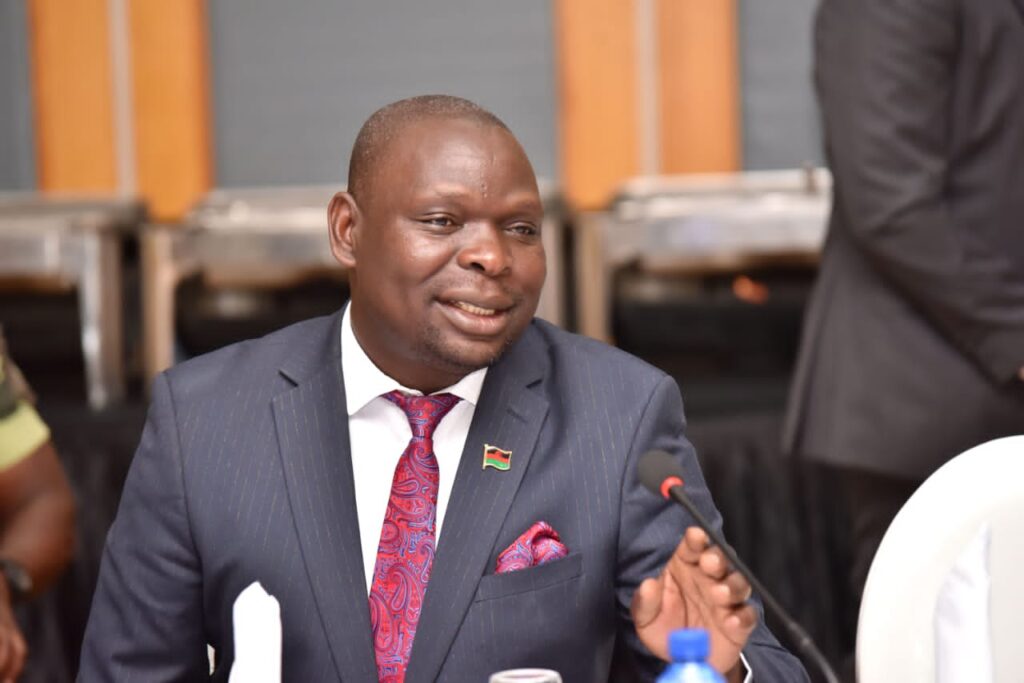By Frank Phiri

The government’s latest moves to take over control of foreign currency-denominated accounts proceeds from commercial banks is retrogressive to national growth and inconsistent with the country’s own economic goals.
FCDAs represent the liquid assets of both banks and customers held in foreign currency equivalents. These customers may include public and private entities, including individuals. FCDAs play a critical role in facilitating the country’s terms of trade with international markets and in settlement services.
Assets held in FCDAs constitute the national accounts and are part of the tools used in critical assessments such as the country’s foreign currency risk rating, balance of payment tests, and the financial soundness of any country in international trade deals.
In the latest directives by the Finance Minister various organisations in the public, private and NGO sector must surrender 80 percent of their FCDA proceeds to the Reserve Bank of Malawi, the government’s bank. Anything to the contrary is severely punishable, with fines as high as K200 million and or imprisonment for over four years.
The directive represents a slap in the face of well-intended efforts by donors, NGOs and the private sector to help bring about meaningful, stable and sustainable economic development. Sadly, it is also symptomatic of a nation on the precipice of economic disaster if not checked.
Understandably, the move, coming hot on the heels of the recent central bank fiasco about “we don’t know what to do about it”—in a reference to the unending forex shortage debacle—has sparked widespread criticism among economists, bankers and financial watchers alike.

While the intention behind this move may be to stabilize the economy and address the acute foreign currency shortage, it is crucial to examine the potential unintended consequences of such drastic intervention.
The root causes of forex shortages in Malawi have nothing to do with its distribution modalities in the market. They have everything to do with supply and the mismatch to generation sources. The country’s sheer inability to generate enough or surplus forex to meet its burgeoning import demands, leaves it short of requirements. With a deepening trade deficit of over $1.9 billion, the truth is that Malawi is unable to export more than it imports.
The country’s major foreign exchange earner tobacco has seen its contribution to the forex kitty and influence, diminish due to global health sanctions. Mining and tourism have yet to flourish, leaving the country at the mercy of donor inflows. Such inflows, as is painfully well known have in recent years been paltry and erratic.
By tampering with the supply side of the already diminished forex inflows, government is further reducing liquidity of forex and causing the trading space for banks and their customers, to shrink. This in turn will not address the current shortages, but further exacerbate them as commercial bank’s space to manage critical letters of credit for critical imports like fuel, medicine and fertilizer, narrows. Also compromised are currency swaps, which help the country safeguard its exchange rate risks and FX reserves position.
Another risk is the growing disparity between the parallel and formal market. The black market has been pegging the benchmark US dollar at K3,500, double the official prevailing rate. The thriving black market is further reducing the credibility of the banking system, and recipe for devaluation as the authorities would be forced to arbitrate.
There is no doubt that desperate importers are finding comfort in the black market. History has shown that currency devaluation, as advocated by the International Monetary Fund (IMF), can have devastating effects on a country’s economy.
The 2012 devaluation of the Kwacha, for instance, led to increased import costs and reduced export competitiveness. This policy principle, aimed at making exports more attractive, has been criticized for ignoring the short-term consequences of higher import costs. Government control over foreign currency-denominated accounts dealings may seem like a quick fix, but it exacerbates the problem.
By restricting access to foreign exchange, the government risks stifling economic growth, discouraging investment, and driving businesses underground. This approach neglects the fundamental principles of free market economics and ignores the complexities of international trade.
The recent Treasury decision also appears self-defeating. Government’s own plans to promote exports and increase foreign currency inflows under the ATM strategy will be jeopardized as operational costs across agriculture, tourism and mining increase.
Malawi is an agrarian economy, and the sector heavily relies on imports for the inputs. Other sectors such as tourism, mining and manufacturing also depend on forex and imports to thrive. Reducing circulation of forex in the market as intended, automatically increases their costs.
Instead of the government’s excessive controls, Malawi could explore alternative solutions to address the foreign currency shortage. Similar moves in Ghana, Nigeria and Zimbabwe have had disastrous consequences on their economies. Pursuing deliberate fiscal and macroeconomic policies like the ATMM, stimulating production in order to build a robust tax revenue base and employment, and reducing wasteful expenditure by cutting on political miles can be more effective in stimulating economic growth than exerting controls.
Additionally, diversifying the economy, promoting import substitution, and investing in infrastructure development can help reduce reliance on foreign currency.
The latest FCDA operational guidelines is a misguided attempt to address the country’s economic challenges. Rather than promoting economic growth and stability, this policy risks exacerbating the problem. It is essential to consider alternative solutions that prioritize free market principles, fiscal discipline, and sustainable economic development.
*Frank Phiri is the Technical Advisor to the Association of Business Journalists (ABJ), but writes this in his personal capacity._


